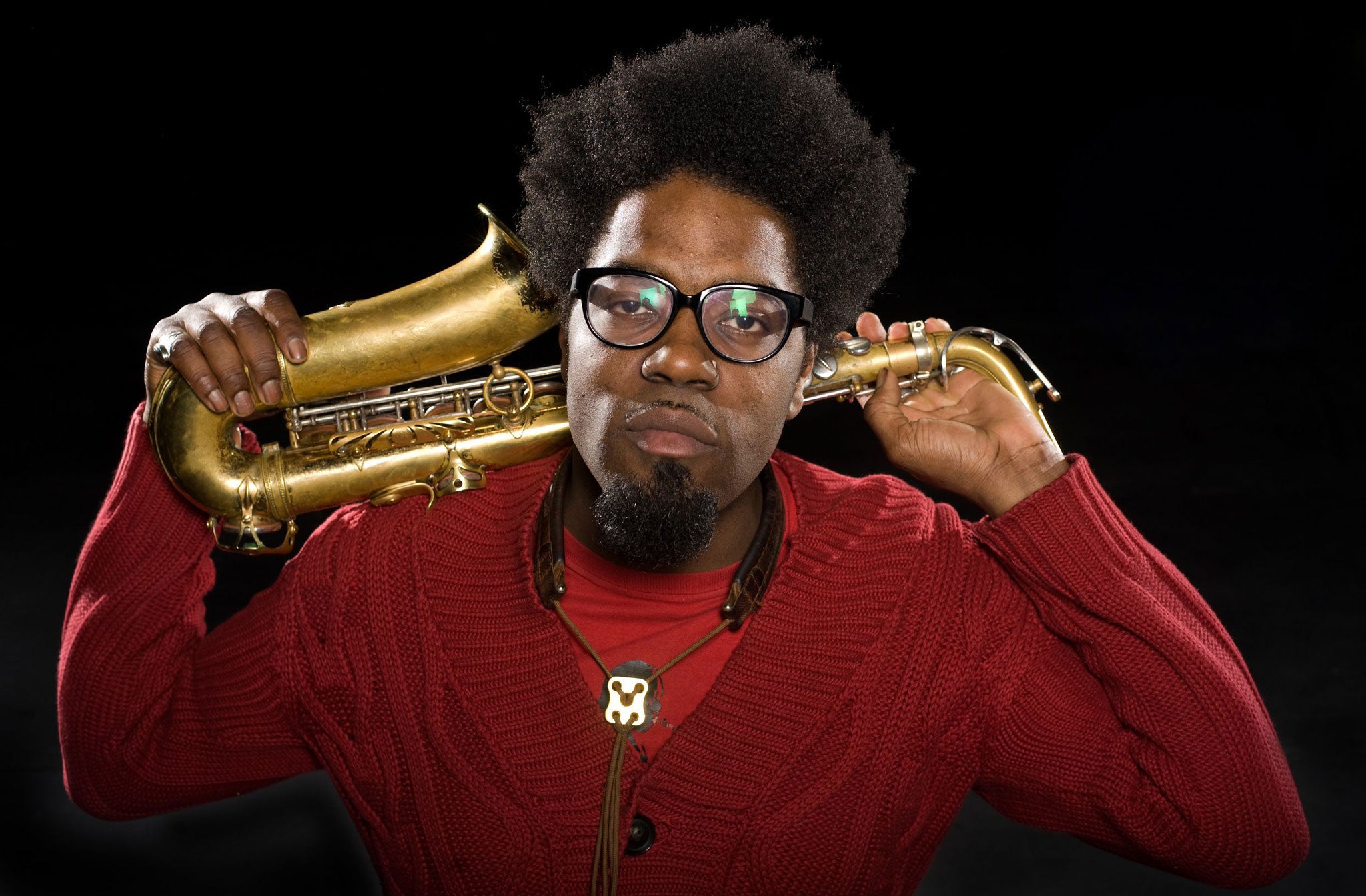The Week in Radio: Jazz man Soweto Kinch's city tour captured Birmingham's inner beauty

A documentary on Birmingham? Thanks but no thanks, I thought to myself while pondering the new series of Reimagining the City. Seriously, Birmingham? It's hardly Florence or Cairo or Cape Town. No one nudges their partner on a soggy January morning and says wistfully, "Darling, wouldn't it be just lovely if we could leave all this behind and disappear to Birmingham?"
Then again, the Re-Imagining series, which returned to Radio 4 this week and in which writers and artists go back to the cities that have moved or changed them in some way, is rather unusual.
It sounds like it might be a daft travelogue, in which some pillock in a big hat who wishes he were Michael Palin walks slowly around a city, talking in a theatrically sombre voice and patronising the locals. But in fact these episodes are more like essays, albeit written and recorded in situ, in which people with a flair for observation look at a much-loved place through our eyes and then peel back the surface to reveal its very heart and soul.
So I listened and found Soweto Kinch, the jazz saxophonist and rapper, sitting on Soho Road on a crisp autumn morning watching the students on their way to college, the workers starting their day and the people cracking open an early-morning tin of Special Brew, and joyously yelping: "I LOVE BIRMINGHAM!"
Kinch, who moved to the city when he was nine years old, recalled Soho Road as a place that reflected the latest immigrant wave. As he was growing up it moved from being predominantly West Indian to Punjabi. He noted the various food shops, each reflecting the different cultures living cheek by jowl, and the traffic: "You've got Jamaican-style driving, you've got north Indian driving, Kurdish driving, all on the very narrow A-roads."
He recalled his own early years, being sent to a private school and having to wear a red blazer and carry a briefcase, and being duly ridiculed on the streets. He had patterns shaved into the side of his head, a Nineties fad which stopped him getting beaten up in his own neighbourhood but ensured a righteous kicking in another.
He traced the 11C bus route that snakes through residential areas and tourist hot spots, and reflected on the "invisible eyes" of the community that make "you feel protected and like you're part of something bigger than yourself".
This was far from a tourist's guide. Kinch loitered outside pubs, lurked under flyovers and listened to police sirens. He recalled pubs, bookshops, jazz clubs, churches, mosques and talked of class, religion, race and slavery. In just half an hour, Kinch dug deep into the delights, the dark secrets and the many extraordinary contrasts of his hometown. He was smart and surprising and funny. As, it turns out, was Birmingham itself.
Radio 3's Sunday Feature was also getting under a city's skin, and while Rana Mitter's portrayal of Shanghai didn't quite have the warmth of Kinch's love letter to the Midlands, it was certainly eye-opening. In fact, the city has more in common with Birmingham than I ever imagined. There was the jazz, brought over by Westerners in the Twenties and embraced by the young Chinese, and there the imperialism and industry that helped make it what it is today.
Then there were the residents, in thrall to neon lights, magnificent buildings and, we heard, the Hollywood film The Hunger Games. Shanghai is, we learned, a place of both plenty and poverty, a city with a rich and troubled past that is doing its upmost to look to the future. It didn't seem that far away at all.
Join our commenting forum
Join thought-provoking conversations, follow other Independent readers and see their replies
Comments
Bookmark popover
Removed from bookmarks